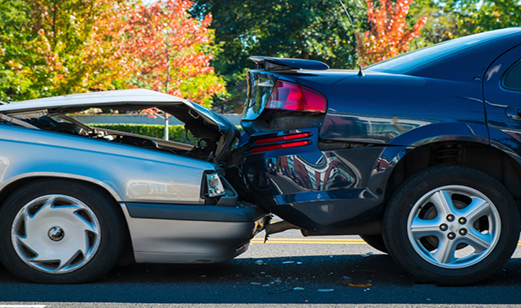Not only that winter is the season to be jolly, but also to be very careful. In Canada, winter months are the most dangerous when it comes to car collisions due to the difficult weather conditions but also to the agglomeration on the roads. Insurance companies report a staggering 49% rise in the number of claims related to car collision from December to January only. But how prepared are Canadians when it comes to a fender bender?
According to report from TD Insurance, although nine out of ten Canadians most likely know how to react following a car collision, more than 31% have no clue what steps they should take. Your actions after being involved even in a small accident are very important as they can lead to strong financial repercussions and can affect your insurance coverage.
Nobody can be fully prepared in case of emergency, so it would be good always to keep in your car, a list with “to do things” ready for these kind of situations. It is very easy to forget them or make errors in the chaos. Here are the key steps to follow when you get into a fender-bender:
- Keep Calm Being involved in an accident, even a minor one, can be very stressful, chaotic and, for sure, time-consuming. As difficult and impossible it may seem, you have to keep calm and try not to take any impulsive decisions that you will regret later. Don’t panic. Remember that stressing yourself will not do you or others any good.
- Safety First Try assessing the situation and, after checking everyone involved in the car accident, including yourself, for any injuries, call the emergency number if necessary. After making sure everyone is alright, try avoiding another accident by turning on your hazard lights and by setting up your reflective triangles to be visible and warn other traffic participants.
- Move Your Car If Appropriate The next step is moving your car out of the traffic, but only if the situation and province regulations allows it. If the accident involves injured persons, do not move them or the car, and wait for the ambulance and police. If this is not the case, and if the law permits it (check with your insurance company or the CAA what are the regulations applied in your province), move your vehicle, but note its position after the impact. Take pictures if you can.
- Call the Police In the case of injury, if your car has major damage, or if you are the victim of a criminal act, call 911. Use the non-emergency police number 311 in the case of a minor accident and ask for help in being directed to the nearest reporting center in the area.
- Gather As Much Information As You Can Information is power, so it is crucial to provide your insurance company and to the police (if the report has been filed) as much details as you can. Take pictures with the cars involved in the accident (car position, damage), driver’s name, address, phone number, license number, insurance information and license plate number. You can also gather the names and phone numbers of witnesses (if any).
- Call Your Insurance Company Getting into contact with your insurance provider not only can help you in following the right procedure in completing a file claim but also will give you access to information regarding the reparations of your vehicle and can speed up both processes.
- Submit the Accident Report It is very important to report the accident, even if the car doesn’t have significant damage or if there is no loss of human lives or injuries. Not reporting might cost you the next time your contract is renewed. Also, take into consideration that the other driver involved in the accident can report, and his insurance will contact your insurance company, and this can result in the cancellation or non-renewal of your policy.
- Should You Just Deal It on Your Own? Should you just bypass the insurance company and try to deal the situation with the other driver? It might sound better than all the hours spent in reporting and all the paperwork, but it is not advisable. You might not report the event and take your vehicle to an auto service business, but the other driver can be unscrupulous and can make fraudulent injury claims after the accident, and that can cost you a lot. Also, you could face more important damage to your car than believed and the other driver may not give you any additional money.
Although unpleasant, fender-benders are quite common, especially during winter. Make sure to follow these steps to move with ease through the process and get back to your life as soon as possible.


